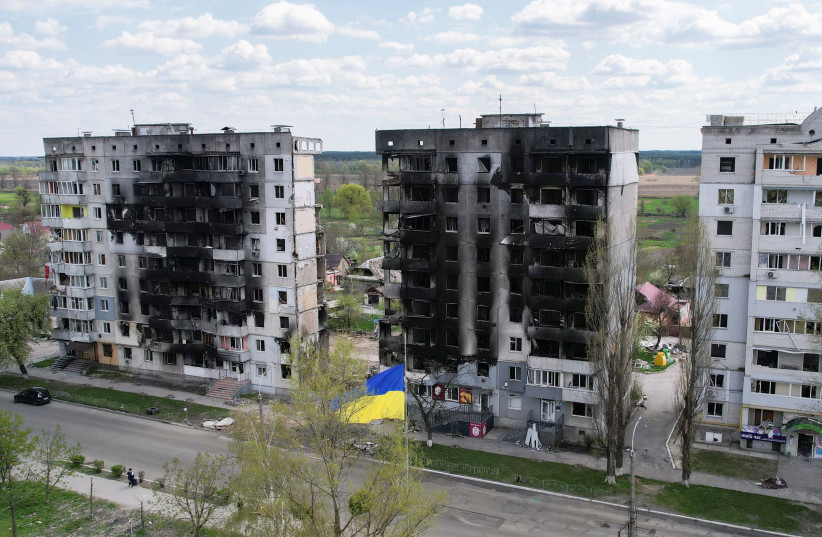Estonia has bought a lot of weapons from Israel in the past year, including more than 500 Spike anti-tank missiles and the Blue Spear missile system for coastal defense.
Estonia, a small Baltic state bordering Russia, has also pledged €220 million in military aid to war-torn Ukraine in recent months. None of the weapons transferred to Ukraine are known to be Israeli thus far.
But Estonian Foreign Minister Eva-Maria Liimets said Jerusalem has not blocked Tallinn from giving Israeli arms to Ukraine, contrary to reports published earlier this year.
“I am not aware of any obstacles at the moment,” Liimets said, adding that if there was such a ban, she would have raised it in her meetings with Foreign Minister Yair Lapid and Defense Minister Benny Gantz on Monday. “So far, we have gotten permission from all countries of origin for what we wanted to donate.”
Pointing to her country’s contributions to Ukraine, Liimets said, “I think that every country who has defensive missiles should support Ukraine and donate or sell arms. I think it is very important because Ukraine is fighting for democratic values. I think they deserve the help of other democracies in this fight.”

Ukraine was the main topic of discussion in Liimets’s meetings in Israel, in which she called for continued political and diplomatic support for the country and condemnations of Russia, and praised Israel for voting to condemn Russia at the UN and for its suspension from the UN Human Rights Council.
Liimets said it was “good to see Israel has been outspoken on the issue.... I think Israel has been very like-minded and outspoken about this unjustified and provocative war, which Russia started in Ukraine.”
She emphasized the importance of humanitarian aid to the millions of Ukrainian refugees and displaced persons.
Asked if she thinks Israel should do more, Liimets said, “We must all think constantly about what we can do more. We see civilians killed on a daily basis in Ukraine. This massacre in Ukraine is still ongoing. We must all do what we can and ask more from ourselves.”
Moving forward, Liimets said it was “important that if parts of Ukraine remain occupied, there should be a long-term non-recognition policy in place.”
Russia showed its “true face” when it launched its full-fledged war on Ukraine earlier this year, she said.
“They invade sovereign neighboring countries, they kill, they torture, they rape people,” Liimets said. “All of these horrible pictures that we have seen over the last two months clearly show that we need to push back at Russia’s aggression.”
As a member of NATO, Liimets said, Estonia “would like to see NATO strengthen its defense and deterrence posture at its eastern flank. We would like to see a forward defense concept fulfilled. That is something that we are working on at the moment within NATO.”
Estonia calls itself the “world’s most advanced digital society,” having begun its digitization process soon after it gained independence following the fall of the Soviet Union. Today, its government services are 99% digital.
As such, Liimets also discussed cooperation with Israel on the digital front, especially on cybersecurity.
“Estonia and Israel both have experts in this field, and I think we should have more exchanges of best practices and lessons learned to better protect our cyberspace,” she said.
Asked if she is concerned about Russian cyberattacks, Liimets said that her country faced its first massive cyberattack in 2007 and has since bolstered its resilience and defensive capabilities.
“We constantly get cyber attacks,” she said. “There have been interruptions, but not of massive programs.”
As a member of the UN Security Council in 2020-2021, Estonia was the first country to formally put cybersecurity on the council’s agenda.
“It’s very important for us that like-minded countries work together, and that malicious behavior is documented, and if possible, to find out who is behind the attacks so they can be attributed to the malicious attacker,” Liimets said.
